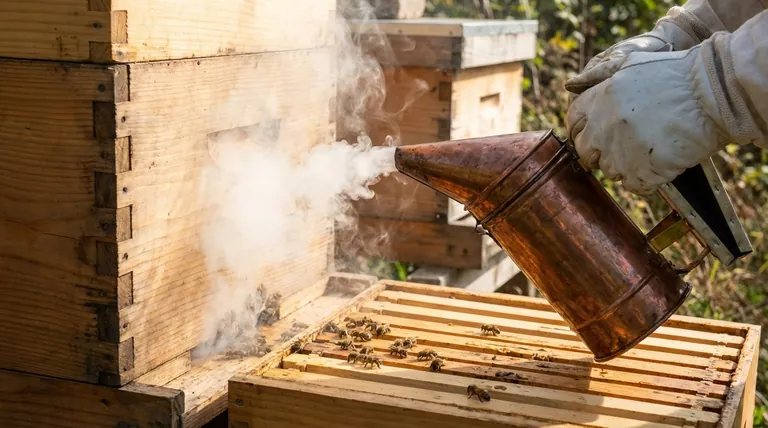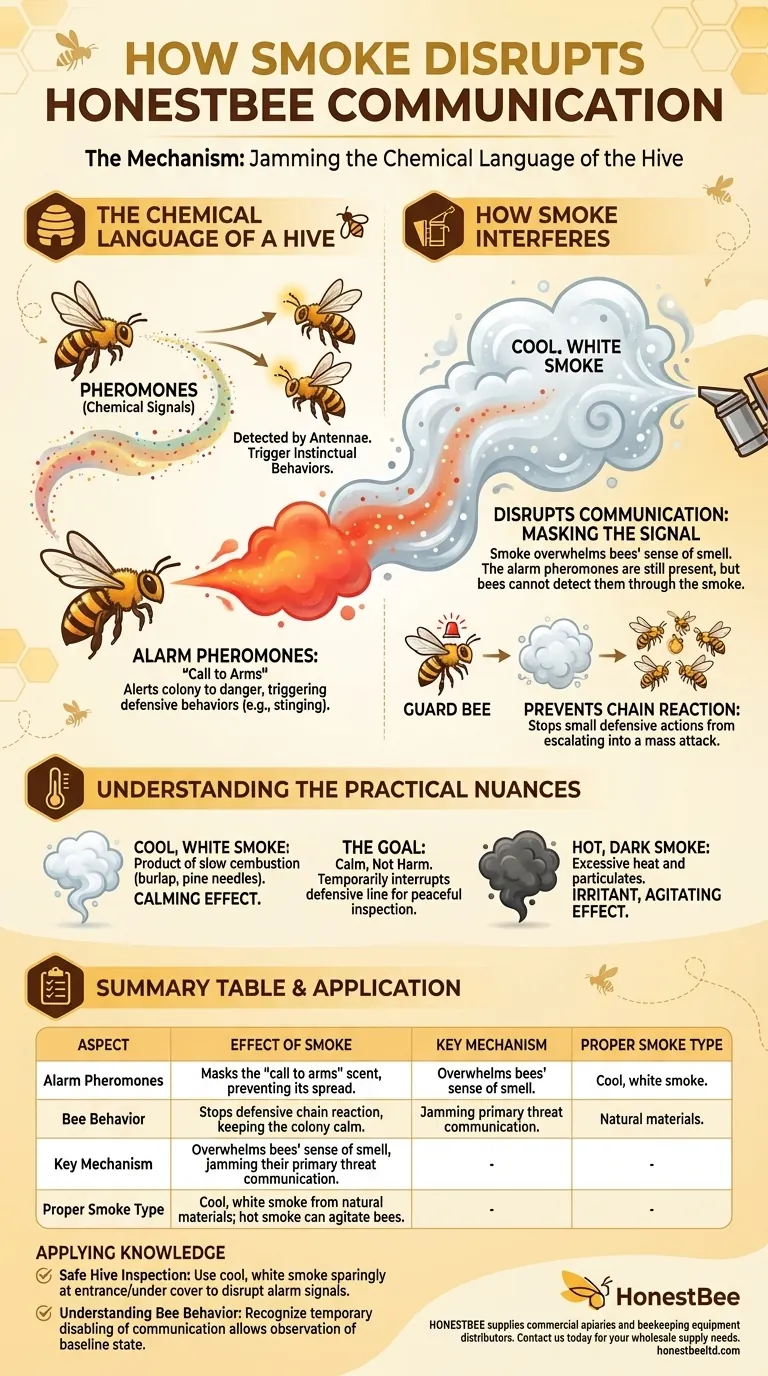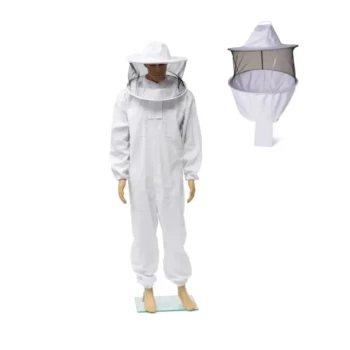At its core, smoke disrupts honey bee communication by overwhelming their sense of smell. This effectively masks the specific alarm pheromones that guard bees release to signal danger, preventing a coordinated, large-scale defensive response from the colony.
Smoke does not sedate or incapacitate bees. Instead, it temporarily jams their primary communication channel for broadcasting threats, keeping the hive in a calm, non-defensive state.

The Chemical Language of a Hive
Pheromones as a Communication System
Honey bees, like many social insects, rely on chemical signals called pheromones to communicate complex information rapidly throughout the colony.
These airborne compounds are detected by the bees' antennae and trigger specific, instinctual behaviors, from foraging and mating to defending the hive.
The Role of Alarm Pheromones
When a guard bee perceives a threat, such as a beekeeper opening the hive, it releases alarm pheromones.
This scent acts as a "call to arms," alerting other bees to the precise location of the danger and triggering aggressive, defensive behaviors like stinging.
How Smoke Disrupts Communication
Masking the Alarm Signal
The primary function of smoke is to mask the scent of alarm pheromones. The dense particles and strong smell of the smoke overwhelm the bees' sensitive olfactory receptors.
Think of it as trying to hear a whisper during a loud rock concert. The alarm signal is still being sent by the first few guards, but the other bees simply cannot detect it through the noise of the smoke.
Preventing a Chain Reaction
By neutralizing the initial alarm, smoke prevents a defensive chain reaction. A single sting can release a potent burst of alarm pheromone, inciting nearby bees to sting the same spot.
Because the smoke prevents this signal from spreading, it stops a small defensive action from escalating into a mass attack, keeping the entire colony much calmer.
Understanding the Practical Nuances
The Goal is Calm, Not Harm
The proper use of smoke is a tool for peaceful coexistence during hive inspections. The goal is to temporarily interrupt the defensive communication line, not to distress or harm the bees.
Why Smoke Quality Matters
The type of smoke is critical. Beekeepers strive to use cool, white smoke, which is a product of slow, incomplete combustion of natural materials like burlap, pine needles, or cotton.
Hot or dark smoke is a sign of excessive heat and contains more particulates. This type of smoke can be an irritant, agitating the bees and having the opposite of the intended calming effect.
Applying This Knowledge
A clear understanding of this mechanism is key to responsible and effective beekeeping.
- If your primary focus is a safe hive inspection: Use cool, white smoke sparingly at the hive entrance and under the cover to disrupt alarm signals before a defensive response can be mounted.
- If your primary focus is understanding bee behavior: Recognize that you are temporarily disabling a critical communication system, allowing you to observe the colony's baseline state without triggering its threat-response protocols.
Respecting this intricate chemical language allows for a safer and more productive interaction with these vital insects.
Summary Table:
| Aspect | Effect of Smoke |
|---|---|
| Alarm Pheromones | Masks the "call to arms" scent, preventing its spread. |
| Bee Behavior | Stops defensive chain reaction, keeping the colony calm. |
| Key Mechanism | Overwhelms bees' sense of smell, jamming their primary threat communication. |
| Proper Smoke Type | Cool, white smoke from natural materials; hot smoke can agitate bees. |
Ensure your hive inspections are safe and efficient with the right equipment. HONESTBEE supplies commercial apiaries and beekeeping equipment distributors with high-quality, wholesale beekeeping supplies. From smokers to protective gear, we provide the reliable tools you need to work confidently with your colonies. Contact HONESTBEE today to discuss your wholesale supply needs.
Visual Guide

Related Products
- Premium Traditional Copper Bee Smoker with Bellows
- Stainless Steel Honey Bee Smoker Hive and Honeycomb Smoker for Beekeeping
- 54-Piece Smoker Fuel Pellets for Beekeeping Beehive Smoker Fuel
- European Stainless Steel Bee Smoker for Honey Bee Hive
- Economy Galvanized Beekeeping Honey Bee Smoker for Wholesale
People Also Ask
- Do bee smokers work on wasps? Why It's a Dangerous Misconception
- What is the proper technique for lighting a bee smoker? Master the Layered Fire Method for Calm Hives
- What should be considered when choosing a bee smoker? Find the Right Tool for Calm & Safe Hive Inspections
- How should a smoker be used to produce effective smoke? A Guide to Calm, Productive Beekeeping
- What is the smoke that beekeepers use? The Secret to Safe and Calm Hive Inspections



















